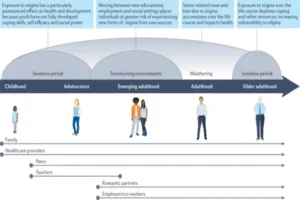Online Gaming: The Digital Playground of the Modern World

Online slot spaceman has become one of the defining features of the 21st century. What started as a niche activity among tech enthusiasts has grown into a global entertainment powerhouse, attracting billions of players and generating massive revenues every year. It’s not just about playing anymore—it’s about community, creativity, and culture.
The Origins of Online Gaming
The early seeds of online gaming were planted in the 1970s and 1980s, when text-based multiplayer games called MUDs (Multi-User Dungeons) let players explore virtual worlds through simple commands. By the 1990s, as the internet spread to homes, iconic titles like Quake and StarCraft introduced fast-paced online multiplayer competition.
These humble beginnings paved the way for today’s massive, interconnected ecosystems of gaming.
The Explosion of Accessibility
One of the biggest reasons behind the rise of online gaming is accessibility. Unlike the past, when powerful PCs or expensive consoles were necessary, now even a budget smartphone can host engaging multiplayer games.
Cloud gaming services like Xbox Cloud Gaming, GeForce Now, and PlayStation Plus Premium have made it possible to play AAA titles without expensive hardware. This has broken down barriers and opened doors for millions of new players worldwide.
Why Players Choose Online Gaming
Gamers are drawn to online play for various reasons:
- Social Connection: Playing with friends, meeting new people, and forming online communities.
- Constant Updates: Many games release regular content drops, keeping experiences fresh.
- Competition: From casual ranked modes to professional esports leagues, online gaming satisfies the competitive spirit.
- Endless Variety: Whether you love puzzles, shooters, sports, or fantasy role-playing, there’s something for everyone.
The Rise of Esports
Esports is the crown jewel of modern online gaming. Millions of viewers watch professional players compete in Fortnite, League of Legends, Valorant, and Dota 2. Prize pools now reach tens of millions, and esports stars enjoy global recognition similar to athletes.
Streaming platforms like Twitch and YouTube Gaming amplify this phenomenon, turning gaming into a spectator sport that anyone can enjoy.
Online Gaming Communities
Games aren’t just about gameplay—they’re about people. Communities form around titles, with players sharing strategies, artwork, memes, and even life advice. Platforms like Discord serve as virtual meeting places where friendships thrive beyond the game itself.
Positive Impact of Online Gaming
Contrary to stereotypes, online bonus new member 100 can have many benefits:
- Enhances teamwork and communication skills.
- Boosts problem-solving abilities and strategic thinking.
- Provides a creative outlet, especially in sandbox games.
- Acts as a source of stress relief and relaxation.
Challenges and Concerns
However, the industry also faces its share of issues:
- Addiction and overuse, especially among younger audiences.
- Cyberbullying and toxic environments in competitive games.
- Microtransaction controversies, where in-game purchases sometimes overshadow gameplay.
- Data security risks, including account hacking.
Developers and regulators are increasingly working to create safer, more balanced environments for players.
The Future of Online Gaming
The next era of online gaming will be shaped by emerging technologies.
- Virtual Reality (VR) and Augmented Reality (AR) promise immersive experiences.
- Artificial Intelligence (AI) will create more responsive, lifelike game worlds.
- Blockchain could allow players to truly own in-game assets.
- Metaverse platforms aim to blur the line between gaming, social networking, and real-world activities.
Conclusion
Online gaming is no longer just a hobby—it’s a global cultural force. It connects people, fosters creativity, drives technology, and even builds careers. As it continues to evolve, online gaming will remain at the heart of modern entertainment, shaping how we play, socialize, and experience digital life.





